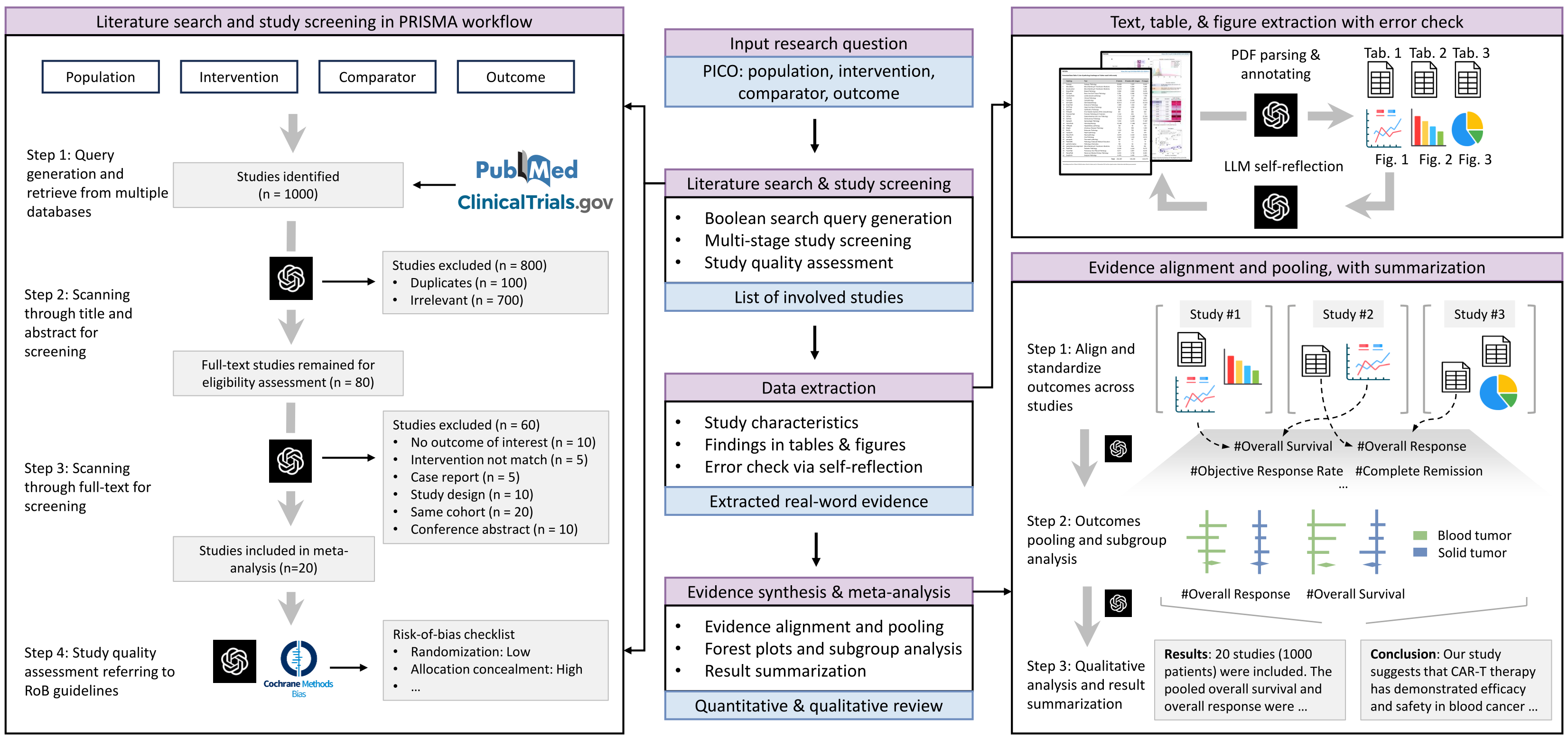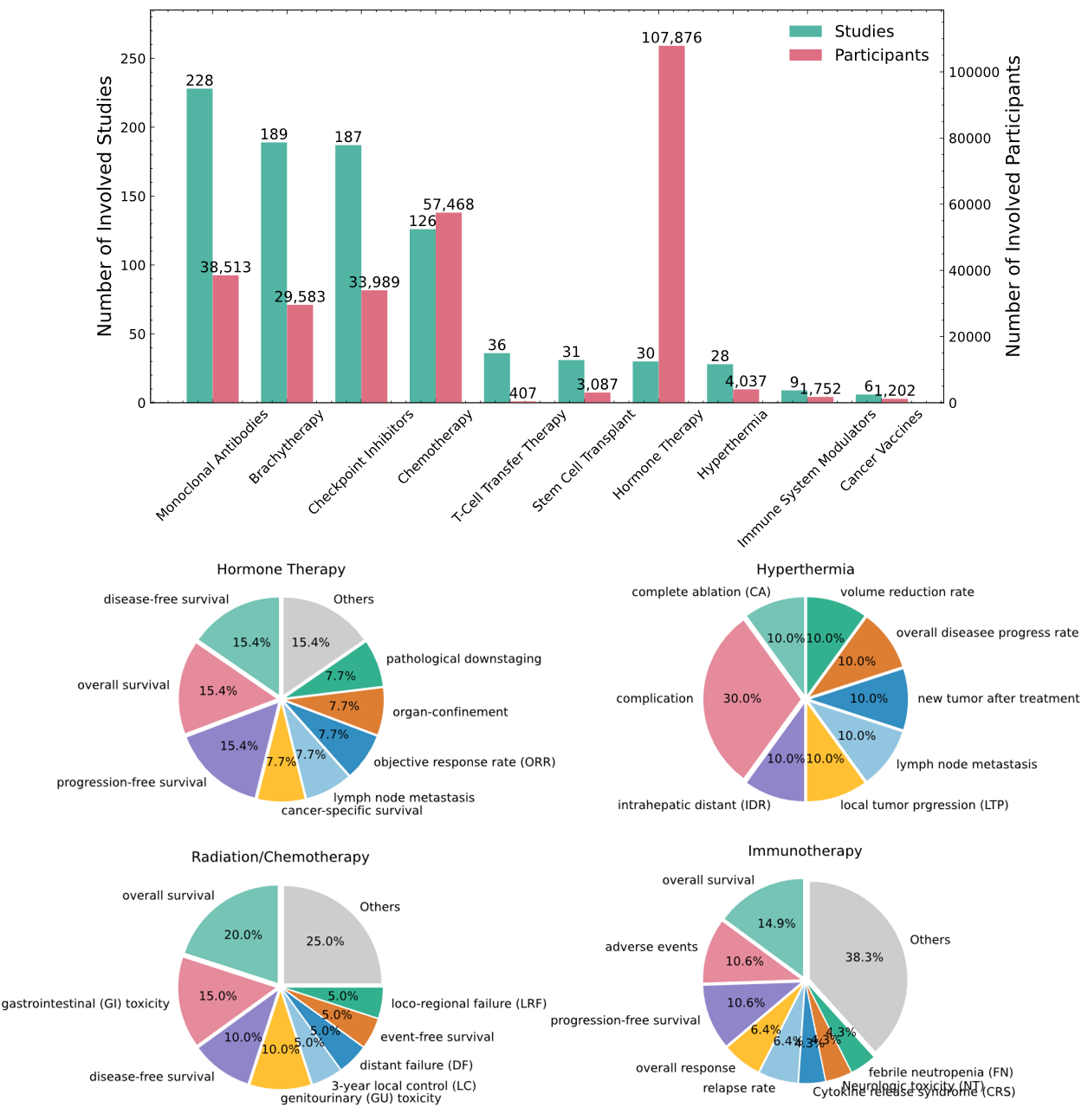MetaSyns: Automate RWE Synthesis from Clinical Trial Studies
Built on TrialMind, MetaSyns provides an interface to assist medical professionals in the automation of systematic reviews and meta-analyses for clinical trials from a broad spectrum of literature. Tailored to handle the growing complexity and sheer volume of data in the medical research literature, TrialMind significantly boosts the processes of data collection, management, and summarization. Simultaneously, it effectively mitigates common issues associated with LLMs, such as inaccuracies caused by hallucinations, ensuring a more reliable and streamlined research process.

How it helps
MetaSyns offers rapid access to an extensive collection of clinical trial studies, along with a detailed breakdown of their key features such as conditions, therapies, and endpoints. It enhances user engagement through intuitive visualizations of these analyses, fostering an effective human-AI collaboration. Additionally, MetaSyns facilitates the automated synthesis of real-world evidence to address complex research inquiries, akin to those found in meta-analysis studies. This includes generating aggregated outcomes like forest plots of treatment effects and conclusions similar to those in systematic reviews, all based on real-world data gleaned from the literature.

How it works
MetaSyns is designed as an interface between the user and LLMs and guides users step-by-step through the standard meta-analysis practice.
First, it expedites the study search and screening process by generating comprehensive Boolean queries to multiple databases and then building hierarchical inclusion and exclusion criteria following the Preferred Reporting Items for Systematic Reviews and Meta-Analyses (PRISMA) guidelines.
Second, it excels in extracting study protocols and results from unstructured documents, with the data integrity ensured by the offered provenance and automatic error check via LLM’s self-reflection.
Third, it is adept at aligning and aggregating the extracted evidence from multiple studies, considering the risk of bias, publication bias, and random effects.
Last, it extends to the quantitative analysis of the aggregated results via forest plots and subgroup analysis and then concludes the findings.
In this way, TrialMind delivers valid and reliable results in meta-analysis while maintaining a flexible and interactive approach that adapts to the user's requests at each stage of the process.